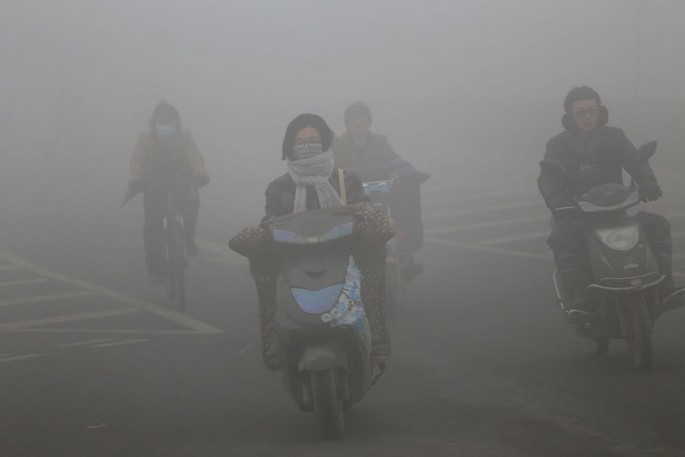Chinese have named the chronic lung disease they get from constant exposure to smog the Beijing cough which air purifiers in homes could not avert because of the unhealthy level of air pollution enveloping urban areas.
Because almost 300 cities in China failed badly in meeting air-quality benchmarks in 2015, 1.6 million Chinese die yearly from breathing toxic air, according to Greenpeace. RAND estimated the cost of pollution to the Chinese economy is about $11 trillion or 6.5 percent of its annual GDP, reported CNBC.
Statements from outdoor workers, such as traffic police, about the ill effect of constant pollution to Henan’s pollution and survey results both point to the urgent need for the Chinese government to provide smog incentives to these people at high risk.
However, while there is consensus that the smog incentives, likely in the form of protective gear and cash are definitely needed, Zhengzhou city officials admit the process takes a long time. They cite the need to draft a proposal and present it to the government as the initial step.
The next move is for departments to conduct the necessary research on the planned incentives. A draft policy would be sent to the city lawmaking body to review and decide if a law should be passed.
Those steps are needed for the provincial government to pass the needed law, said Li Guowo, member of Henan’s provincial advisory body. The other difficult part is identifying the groups who would be given the incentives because workers in some small plants are also exposed to air pollution in the workplace, added Li.
In December 2015, a labor union that belongs to the All-China Federation of Trade Unions conducted a survey in Henan’s capital city which has been severely affected by the smog. About 96 percent of the 400 respondents liked the proposed incentive and 90 percent identified outdoor workers as the first who should be given the subsidy.
The survey did not specify what type of incentives would be provided, but one respondent – a traffic police officer deployed in Shijiazhuang, capital of Hebei Province – stressed the details regarding the incentive such as the type of protective gear or amount of cash is not that necessary. However, what is more urgent is to implement the subsidies as soon as possible while outdoor workers’ health could still withstand the toxic air.
Among the reactions to the proposal is that companies do not want to shoulder the cost because of its impact on the finances. Managers have also expressed apprehension if outdoor workers are given shorter working hours or long breaks because it would mean lesser number of workers performing road-cleaning tasks.



























